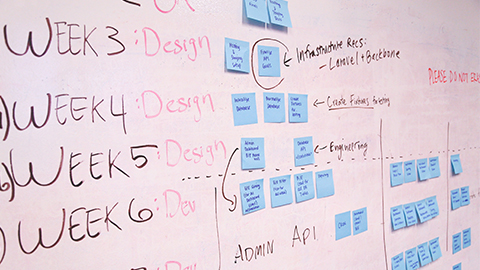 Conscious business invites you to see and create your business in a larger ecosystem than the one your start up may be using to define the monumental process of successfully taking your vision to market.
Conscious business invites you to see and create your business in a larger ecosystem than the one your start up may be using to define the monumental process of successfully taking your vision to market.
In addition to capturing target audiences who “get” your business and subscribe to/buy your business outcomes, conscious business asks you consider the intricate engagement of your staff, communities related to your business process, your local community and the environment. Activating meaningful relationships in these groups is like dropping rose pedals on the ground for people to find their way to your door. The key is to build relationships with the mindset of understanding your stakeholders’ key objectives/needs and then having their agenda in mind as “you do you, Bro.”
With the million flying pieces of business that chaotically alter your daily start up priorities, how in the world can you keep anyone else’s objectives in mind?
Well, that requires intuition, my friend. It turns out that intuition is an essential leadership literacy in the age of digital creativity and connection.
All humans have intuition (I won’t speak for all species, but I suspect it’s true for them too). Cavemen used it to survive. Since they were without internet access, their intuition would determine where the juiciest members of a herd could be found in a forest or where to establish the safest dwelling given the weather, wild beasts and aggressive tribes.
Here’s the interesting part. Now that we are a seemingly self-reliant and uber-informed society, Web 2.0 should substitute for the need to use our intuition to survive, no? Well, this time, instead of ourselves, families or tribes being the boundaries of consideration for sustainability, the World Wide Web informs us that it is the world wide web of humanity that is in peril of extinction. So, full circle…we need our intuition to survive.
Here are a few of the business-critical functions in which intuition can help you create better and more accurate strategic decisions: creativity in ideation choices; process or product innovation – whether iterating or integrating; strategic partnership choices; talent decisions.
Name one of those decisions that will not cost your business dearly if done without the benefit of the larger, longer perspective. Whichever kind of intuition you may possess: clearly perceiving future benefits/costs; hearing the words about the best choice despite evidence to the contrary; having a gut feel as to the best path; or having a total “knowing” about what to do, you can bet it will help you…and as a conscious business leader it’s a new skill requirement.
Have you ever found yourself saying: “My instinct told me one choice and solid research pointed to another. I sided with the evidenced-based choice and boy, I’m glad I did.”? Not likely. On the other hand, many of the best decisions are supported by both sides of the brain – analytic and intuitive.
The intuitive operating system is within. We just need some software to bridge the gap between our desire for truth and wisdom in strategic decision making and accessing that information. As a conscious business leader, self-awareness is fundamental. In cultivating self awareness, intuition sharpens. If you want to become a fluid, intuitive decision maker (who also takes facts and logic into account) then here are some tips for operating your software to access your intuitive wisdom:
- Sit up straight
- Breathe until you remember you are human, even if it takes three minutes
- Go to the place inside you that feels safe – alternatively, try the middle of your head (if you are in the middle of your head and start to think, move your attention back a little)
- Breathe a few more times, thanking yourself for being tuned into what’s best for you and your business
- Ask a question for which you would like a response and wait
- Write down any image, sound, feeling or sensation you receive, without the need to know what it means
- Thank yourself
Eventually, this practice bridges the gap between the logical and intuitive parts of your brain and enhances self-trust, which is an important component to fluid intuition. The more patient you are, without judgment of what happened or attachment to the outcome, the swifter your inner responses arrive and the more confident you feel in them.
Hint: if you are asking yourself a question because you are afraid of a particular outcome and/or you are attached to a particular answer, then your intuition won’t work. Fear-based questions block your intuition as your brain moves activity from the creative part to your amygdala - and fight or flight become the prominent urge.
Conscious businesses are the best pathway to planetary survival. Global challenges require both innovation and strategically meaningfully connections that are best chosen by conscious business leaders who open, allow and receive wisdom through their intuition.
You do you, Bro – just don’t forget everyone else. And breathe into your intuition to access and use the wisdom you possess.

Therese Rowley, Ph.D.
As a skilled intuitive, consultant, and thought leader, Dr. Rowley supports leaders making strategic decisions with intuitive data and deepens their access to intuition. Her work with Fortune 500 and smaller company leaders in facilitating large scale change in industries such as telecommunications, manufacturing, market research, marketing/communications, real estate development, and financial services spans three decades.